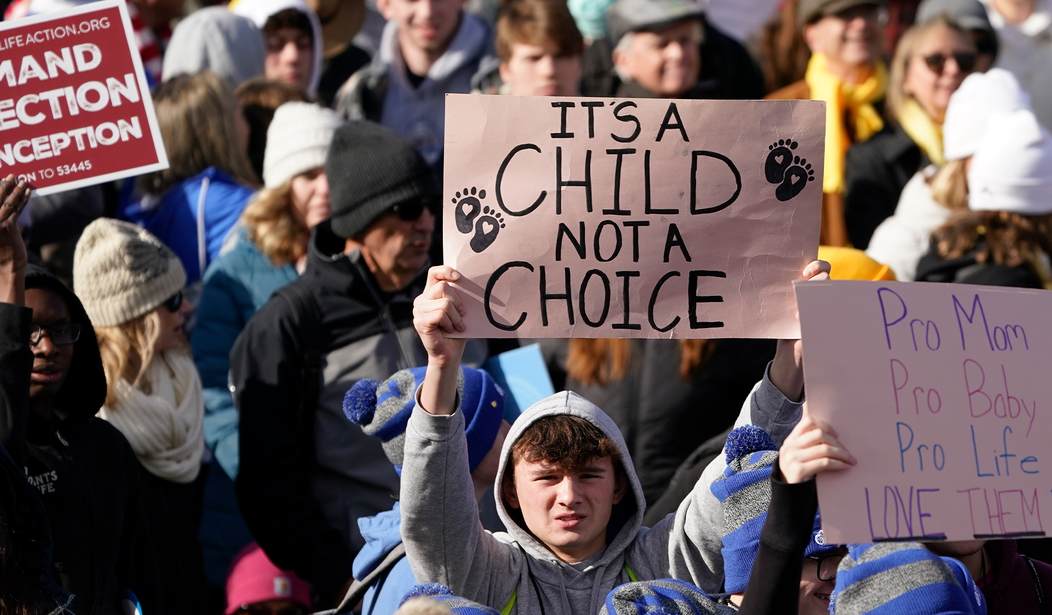Last Wednesday, the Ohio Supreme Court began oral arguments in deciding the fate of the state's heartbeat law, which bans most abortions once a fetal heartbeat is detected, at about six weeks. The law, which passed in 2019 and was revived in summer of 2022 when the U.S. Supreme Court overturned Roe v. Wade with the Dobbs v. Jackson case, was put on hold by the First District Court of Appeals denied the state's request to allow the law to remain in effect while a lower court decides the law's fate.
Thus, as a report from Ohio Capital Journal noted, "the arguments the state’s highest court heard on Wednesday had more to do with whether the law should be paused while the Hamilton County court case continues, and not the constitutionality of the law itself."
The report further detailed what the high court is deciding and the path the law has gone on so far:
The Ohio Attorney General’s Office, represented by state solicitor general Benjamin Flowers, argued that “irreparable harm” is being done by allowing a preliminary injunction — or temporary pause to the abortion law — to go on, even as the case has yet to be decided.
The state appealed to the Ohio Supreme Court after the First District Court of Appeals allowed the injunction to stand, thus keeping the law banning abortions after six-weeks gestation from taking effect until a lower court concludes its case on the legality of the law.
“The problem with the First District’s ruling is that if it’s right, then all 88 common pleas (courts) can unilaterally, indefinitely suspend operation of state law, for as long as it takes to conduct discovery, to hold the trial and to issue injunction,” Flowers told the supreme court justices on Monday.
The state’s highest court is currently deciding largely procedural matters: First, do they have jurisdiction to decide if the injunction can be appealed if it’s not a “final, appealable order,” and second, whether or not the physicians suing the state in the case have the right to sue on behalf of current and future patients.
The court won’t decide on the merits of the abortion law itself unless the Hamilton County case in which the preliminary injunction occurred is appealed to the justices once it’s decided.
Recommended
The case could take months for the justices to decide, and Ohio may not have that long before the case is rendered moot, if pro-abortion forces have their way in convincing voters to pass Ohio Issue 1, the "Right to Make Reproductive Decisions Including Abortion Initiative." Although the report above mentions that there is a ballot initiative this November, it fails to mention the full ramifications or even its name.
Such an initiative will not only do away with any and all laws restricting abortion, but will also affect parental rights when it comes to their minor daughters having abortions as well as if they think they may be transgender and seek procedures that could involve genital mutilation and sterilization.
Pro-lifers, including Students for Life of America Action, posted their support for the law and hope about the outcome, while the American Civil Liberties Union engaged in fearmongering, as one of the parties involved in the case. The ACLU is among those groups pushing for passage of Issue 1, as they themselves reminded in a video at the courthouse reminding people to vote "yes" on Issue 1.
Issue 1 is on the ballot for this November, and will be much easier to pass after Amendment 1 failed in the August special election. Had it passed, it would have made it more difficult for out-of-state, radical leftist groups, like the ACLU, to get ballot initiatives passed by requiring such initiatives to pass with 60 percent of the vote rather than 50 percent plus 1.
A group of dedicated pro-life students & activists rallied at the Ohio Supreme Court this week & heard arguments on the Heartbeat Abortion Prevention Act.
— Students for Life Action (@SFLAction) September 30, 2023
Now, we are confident that the OH Supreme Court will do the right thing by protecting Life in Law when they decide the case! pic.twitter.com/WucbLO2OcO

























Join the conversation as a VIP Member